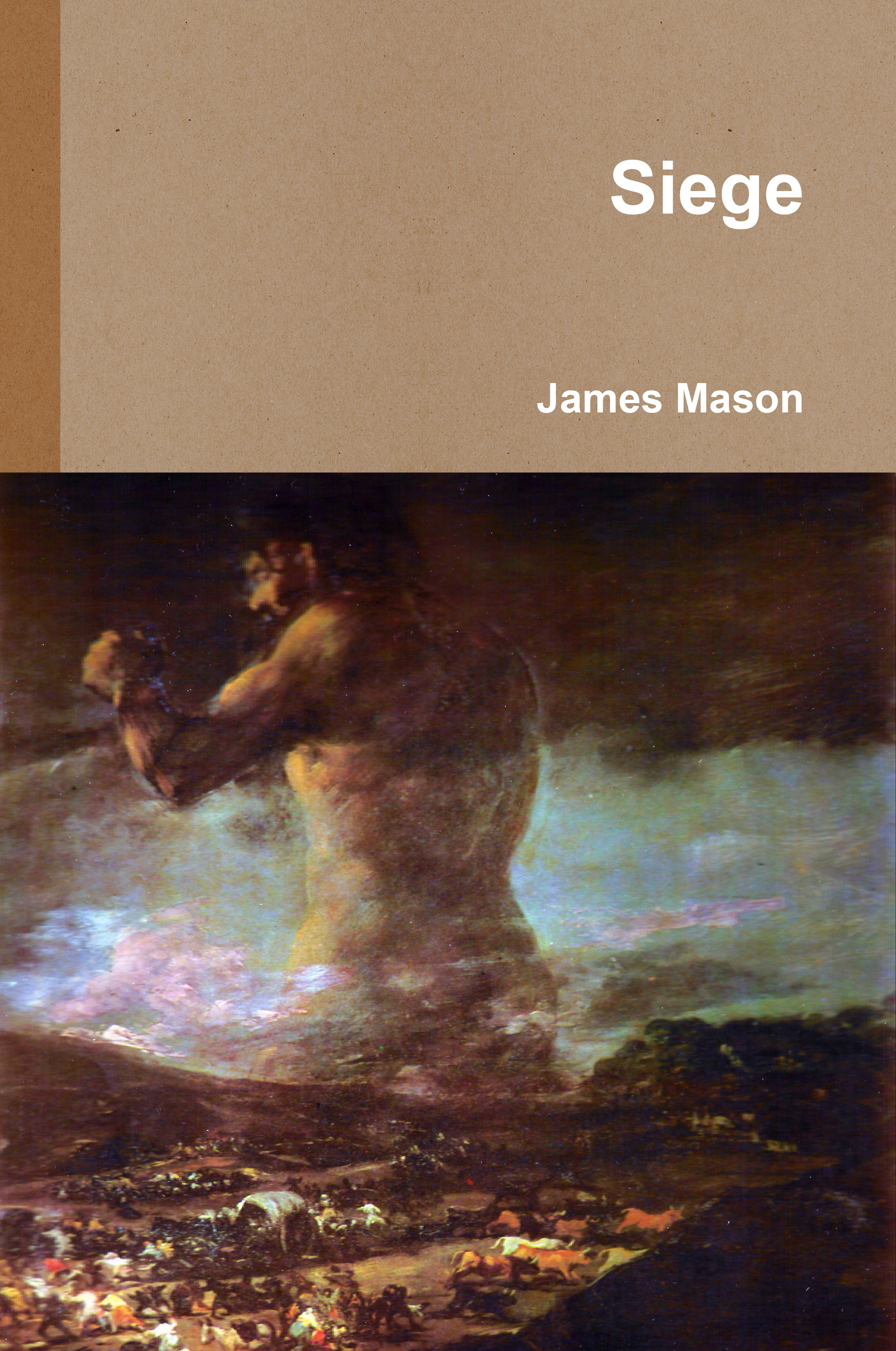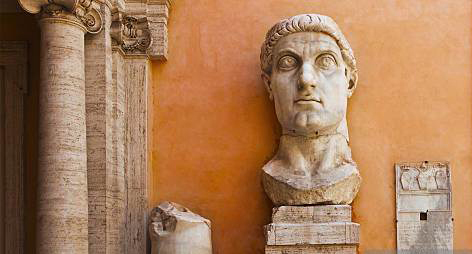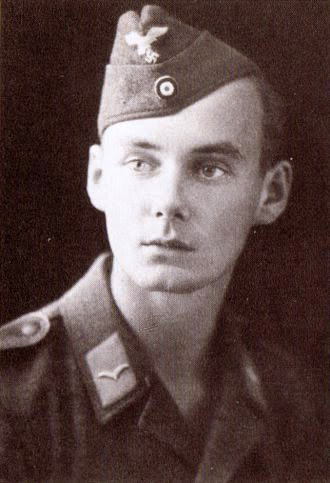State of Emergency

Are you among the conventional survivalists with a few guns, a few rounds of ammunition, some medical supplies, maybe a C.B. radio, and enough food and water for anywhere from two days to two years stored away? Are you one of the ruggedly individualistic types who, as long as he owns his firearms, swears by God that this is a free land and he is a free man? Or are you one of those intrepid ones who says he’ll “shoot the first nigger” that comes rampaging up onto his front porch? In other words, do you count yourself among those rednecks who are smug in their sense of Right Wing-style “readiness”? If so, you can stop reading right here.
Years ago I wrote, after headlines appeared about the discovery of Wesley Swift’s hideout and arsenal (that included everything from automatic weapons to armored vehicles), that if Swift—who died in the late Sixties—could have foreseen the day when, after his death, all his extensive preparations were unearthed and captured by the System, without a fight, that surely he would have viewed it as the end of all hope of resistance. He had expected a full-blown invasion of the United States by Russian and Chinese troops and I know of no group or individual who was as well-prepared for the worst of emergencies as was Dr. Wesley Swift. The “emergency” never came. Swift died a natural death, and the government scooped up his vast arsenal.
Even Commander Rockwell was POSITIVE that the Blacks were going to go on an all-out rampage before the decade of the Sixties was out, and touch off the race war that so many talked about in those days. (In 1967, the year of his death, he had begun to organize what he called the “White Guard” on a quicker, more informal basis than the Storm Troopers, so sure was he that hell would break loose that very year.) But a massive welfare pay-off, a general caving-in of White resistance, and perhaps even a shift in Enemy strategy kept the conflict from coming out into the open.
It was just about two years ago that a number of otherwise respectable and credible Right Wing groups were issuing super-serious, straight-faced accounts of how, in the summer of 1983, Ronald Reagan would die in office, the economy would fall right through the bottom, and coloreds everywhere would go berserk. This was the prediction from the “experts” who were, thereby, unfortunately placing their reputations on the line.
I recall at about the same time one particularly provocative and sensational sheet released—not by what I would want to call “kooks” but by major Movement standard bearers—to the effect that in the upcoming weeks the Anti-Christ himself would seize all television networks (and automatically turn on all TV sets that might be off at that time) and mesmerize any and all whose glance was caught! Thank God the Movement has a shorter-than-hell memory span! Otherwise, that one would be impossible to live down.
Through no fault of his own. Commander Rockwell’s “The Jews Are Through in ’72” never materialized and 1972 came and went uneventfully. Black riots slowed and practically ceased. The economy certainly worsened but did not collapse. The government, the society, and the country itself is becoming more and more like one big, giant, pulsating blob of a stinking, noxious Jew. The next major landmark in time—1984—is behind us. And I’m betting strong that one of the favorites of the fakers—1988—will come and go likewise and hardly even be noticed. I wasn’t long in figuring out that it really meant sticking your neck way out to venture to put a date on practically anything of a social of historic nature. It’s gambling of the worst sort unless you yourself have the means at hand to force the issue according to your own timetable.
It is simply that there has never before existed a more CONTROLLED environment than the one in which we exist today. Things don’t just “happen” anymore. If they don’t come off Big Brother’s drawing board, then they’re not “sanctioned” and most of the time don’t take place at all or, if they do, they’re of a nature hardly worthy of note. Big Brother is in CONTROL. This plus the fact that the population DOESN’T GIVE A DAMN. Things are slipping constantly, gradually, but no significant upsets are being allowed that might either alarm the populace or provide the revolutionists an opening to take advantage of. I don’t expect it to change unless SOMEONE CHANGES IT!
In fact as well as in theory, we are in the period of “Beyond Nineteen Eighty-Four”! From here on out we can forget about even George Orwell. Of course, the astute have been aware all along that “1984” had come into effect long before if ever arrived on the calendar. And I, for one, about a decade ago abandoned the “emergency” school of thought. That is, betting in favor of and preparing for something of a very sudden and fixed nature to occur to transform the situation; something which has to be braced for, weathered in a comparatively short—if harsh—period, and then to be emerged from on the “dawn of a new day”. (I do favor full preparation for a “lights out” type emergency, but that would probably be of a rather long duration and, again, short-term thinking is useless.)
The whole thought was false all along but, up until perhaps this decade, the majority could have claimed ignorance. I began to sense the true nature of the situation, as I said, about ten years ago mainly because of experience born of intense involvement in revolutionary activity and thought. But for the rest, the object lessons are all there now.
Many can’t grasp it, no one really wants to realize such a fact, but there are also plenty who refuse to be parted from their fun and games (like children, they expect and want it all now). What we face is not an emergency, nothing of a romantic or extraordinary nature but, rather, an indefinite period of what Warren G. Harding would term “normalcy”. (I know that taken individually or collectively the manifestations of contemporary “society” are anything but “normal” to us but, as far as great numbers and great periods of time are concerned, they are quite normal indeed.)
Therefore WE are the abnormal and the out-of-place. We have always been such, except that until now most have figured that “Der Tag” was just around the corner which would turn things topsy-turvy in our favor.
That is not about to happen. What it means for each of us is this: as long as there was a hope, real or imagined, of a sudden change in the basic course of things, then we could almost afford to hide behind our “unreal” attitude and approach to the situation with a “You’ll see!” thought guiding us. Presently it has to be clear to all that nothing of the sort is going to be ALLOWED to happen and events are going to maintain a strictly business-as-usual complexion for the foreseeable future. And it is impossible to hide behind an abnormal strategy for very long in a stolidly normal environment, where nothing out of the ordinary is PERMITTED to happen.
It should be added right away that those who do continue to go on in the manner of the past do so as utter and complete fools.
Are you going to go on kidding yourself? Telling yourself that you’ll be ready for it when “it” comes? If you’re a reactionary and a Right Wing type, then it may well require a sudden emergency to get you off your ass. But if you are a revolutionary, then, for you, “it” is here right now, and always has been here, right around you. You were born into it and, unless you kill it, it is going to kill you.
Having nothing initially to do with the name of this publication, what we have to adapt to is not a sudden emergency and then back to normal but, instead, a state of SIEGE. The system WILL fall one day. But when? Certainly no time soon? I’ve said often in the past that the winner of this race, this “Deathwatch 2000”, will be the one who finishes LAST. So it is up to each of us, individually, to see to it that we outlast the System. And you don’t accomplish this by merely stockpiling anything (unless you are prepared to become a hermit for the next 50 years or so). You military buffs should already know that a static defense went out with the Nineteenth Century, and that now it is all up to the fast and the resourceful.
What must our definition of victory now become? To have survived another day, another year. To exist in and amongst the System… but not as a consumer, not as a statistic or as a victim. To exist decently and, to be sure, to “keep the wolves away from the door”. If you’re living smart, as you should be, you’ve already eliminated coloreds and criminals from your uppermost list and have gotten down to the very basics of defending against the real Enemy: the capitalist foreclosers. The old Right Wing types will know how to deal with a violent, one-on-one situation, but how about the ever-encroaching System? Here is where you have to become SMART!
Commander Rockwell said that the purpose of life was to struggle as hard as you can for what you believe in and to enjoy the fight. You cannot fight to your fullest potential for what you believe in while being a full-time slave helping to bolster the Pig economy. And you certainly can’t enjoy your fight existing under unrelenting social and economic pressure. The herds and armies of zombie-ized clones out there cannot or will not see that there IS an alternative. The revolutionary will ALWAYS find or make his own alternative. It is being done. And in this lies not only the definition of short term victory but the PROMISE of ultimate victory one day. We will LIVE. We will out-live the System. And, should we individually not make it all the way, then we will not have been cheated for we will have had our share.
Living within the Beast System as a revolutionary, day-to-day, is the REAL emergency and it calls for emergency measures to be taken on a ROUTINE BASIS. To be able to exist thus is the victory!
Vol. XIV, #1 – January 1985
Order a copy of Siege (here)








